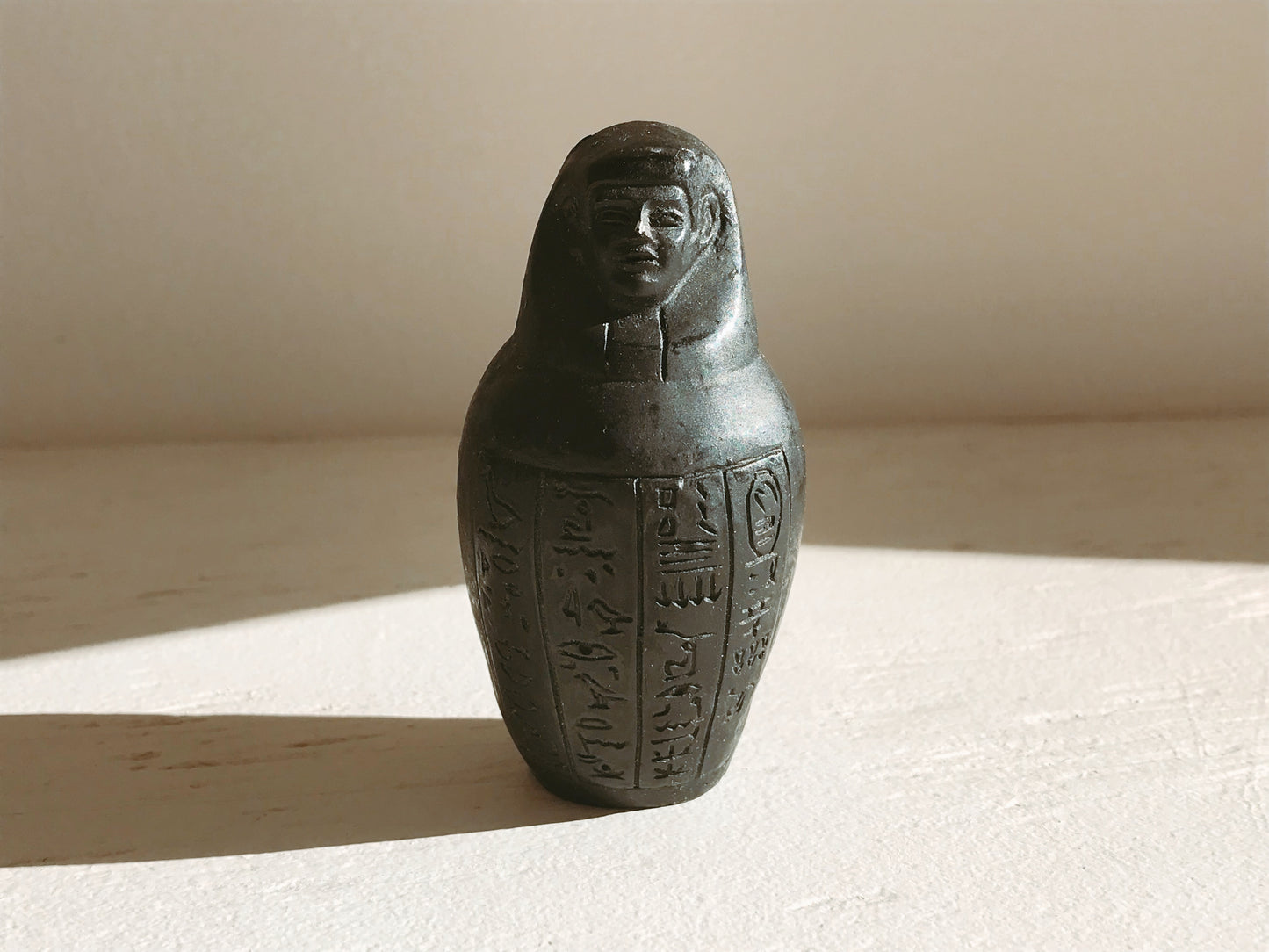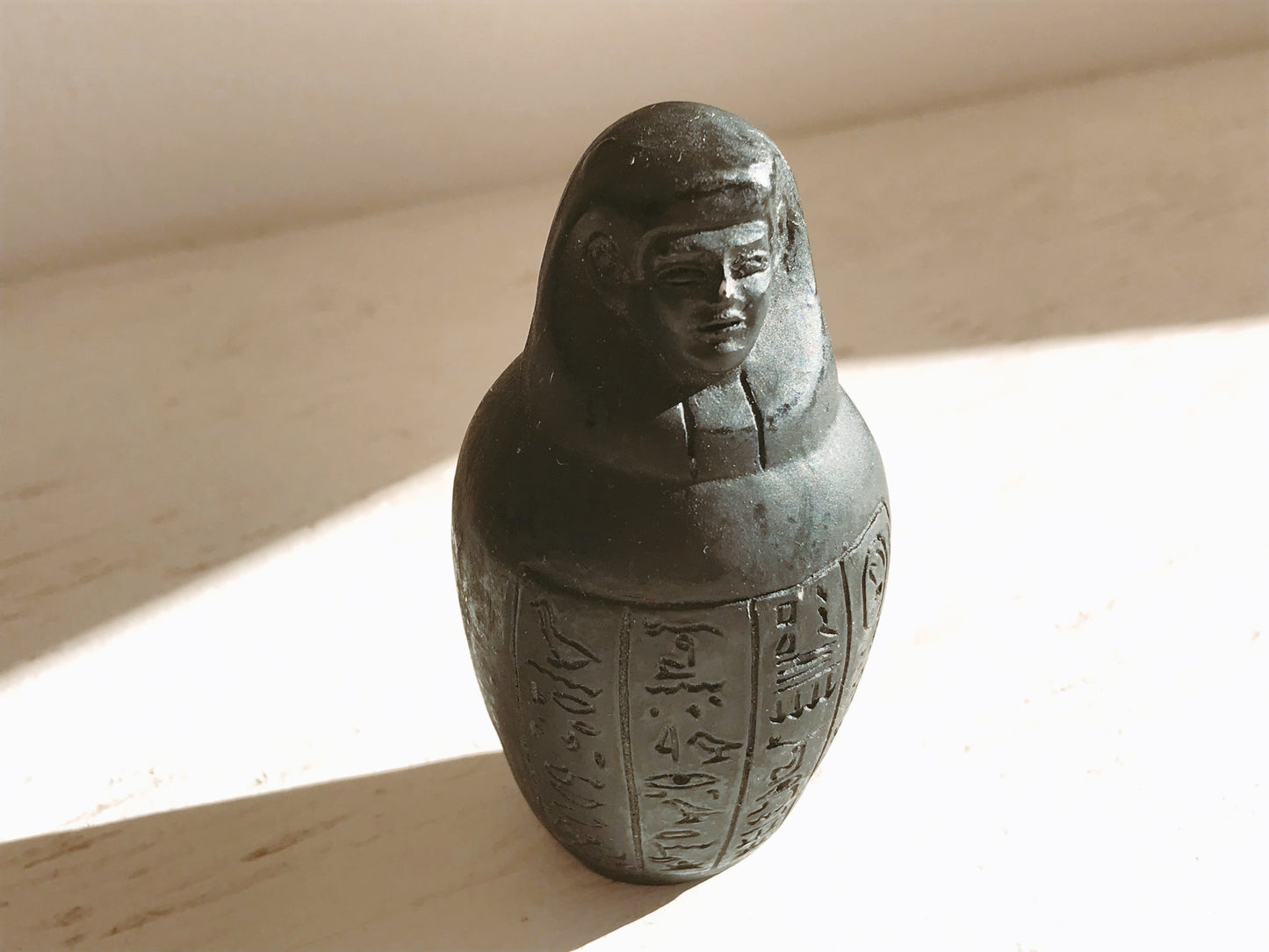Ocotillo Botánica
Mestha Canopic Jar Statue
Mestha Canopic Jar Statue
Historical Reproduction - Vintage - 2001
DeAgostini, The Glory of Ancient Egypt, Collectors Figurine
Issue No. 27 - Statue Only
Approximately 3” tall
MESTHA
Mestha, also known as Imsety, is one of the Four Sons of Horus, ancient Egyptian deities who played a crucial role in the religious and funerary practices related to mummification and the protection of the deceased in the afterlife. Mestha is specifically associated with the preservation of the liver, one of the vital organs removed during the mummification process and stored in canopic jars.
Depicted as a human-headed figure, Mestha represents stability and protection. He is often shown on canopic jars and in funerary texts, safeguarding the liver of the deceased. Each of the Four Sons of Horus was entrusted with the protection of a specific organ and was aligned with one of the cardinal points. Mestha is associated with the South and is under the protection of the goddess Isis, who is his guardian and one of the most significant deities in the Egyptian pantheon.
The role of Mestha and his brothers—Hapi, Duamutef, and Qebehsenuef—was integral to the Egyptian belief in the afterlife. They were believed to protect the organs and ensure the deceased's rebirth and immortality. The canopic jars in which these organs were stored were placed in the tomb alongside the mummy, with inscriptions and spells invoking the sons of Horus to guard the deceased.
Mestha’s significance extends beyond his protective role; he embodies the connection between the physical and spiritual realms, ensuring the liver, considered vital for the soul's well-being, was safeguarded for eternity. His representation in tombs, amulets, and funerary literature underscores the Egyptians' profound belief in the afterlife and the elaborate rituals they developed to secure it.
Mestha, along with his brothers, exemplifies the Egyptians' meticulous care in preparing for the afterlife, reflecting their reverence for the deceased and the divine forces that governed their existence.
Couldn't load pickup availability
Share


EMAIL SIGNUP

